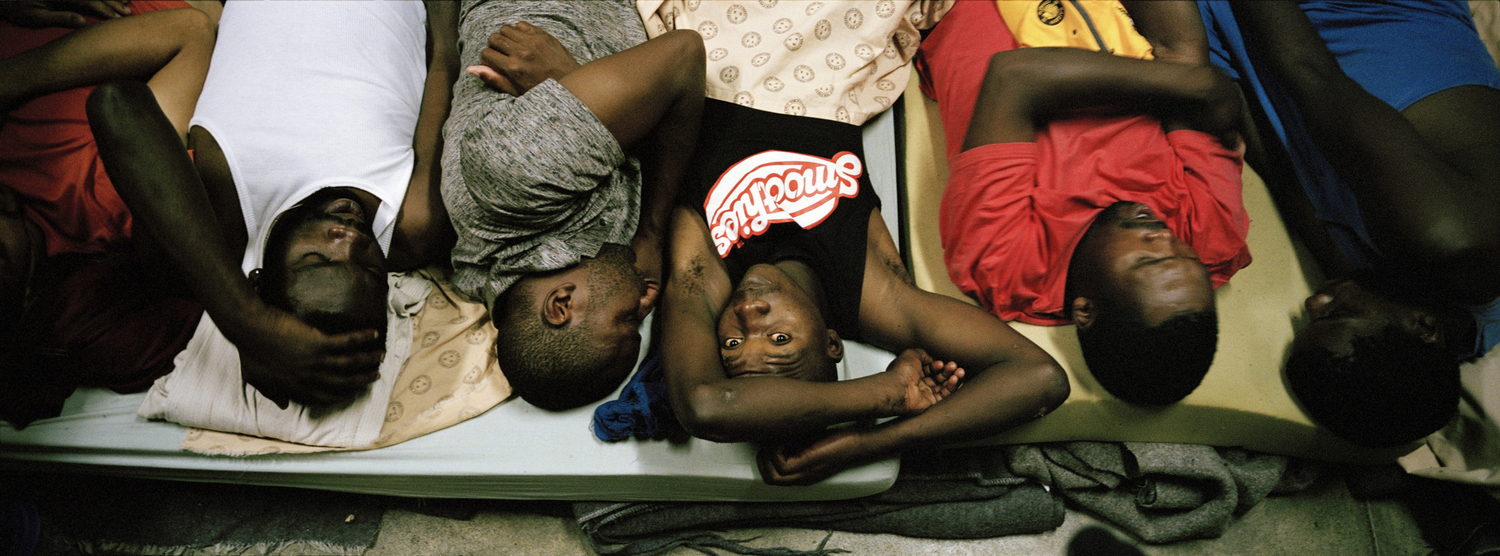Detainees go to court over conditions in Pollsmoor
65 people held in a cell meant for 25
With more than 4,000 inmates, Pollsmoor Prison’s awaiting trial section is one of the most overcrowded correctional facilities in the country.
In an application filed at the Western Cape High Court, Sonke Gender Justice and Lawyers for Human Rights are challenging the “deplorable” conditions for staff and detainees inside the facility.
“The health risks and overcrowding in the remand section are a violation of their constitutional rights. These inmates are legally still presumed innocent until proven guilty,” says Ariane Nevin, Sonke Gender Justice policy development and advocacy officer. Sonke is also a member of the Detention Justice Forum.
Despite several requests for comment since Thursday last week via text, as well as emails and phone calls to the Department of Correctional Services, spokesman Manelisi Wolela is yet to respond to GroundUp..
In December last year, the organisations applied for a supervisory interdict to compel the Department of Correctional Services to resolve the problems. Government has until mid-February to submit their report.
Several current and former detainees as well as a few staff members are also deponents in the court action.
GroundUp spoke to three of the deponents who all painted a grim picture of the conditions of the awaiting-trial section at the facility.
“We’ve been tracking hundreds of complaints about overcrowding since March 2014. Remand detainees reported that they were sleeping on the floors because there weren’t enough mattresses or they were very dirty.
“We drafted complaints to the regional and national commissioners and they didn’t get back to us until March 2015 when they said they would be buying more mattresses,” Nevin said.
The action follows a scathing report by Constitutional Court Judge Edwin Cameron after his visit to the facility in April 2015. Cameron’s report described the cells in both the male and female remand centres as “filthy and cramped.” He also noted the staff shortage at the prison with the staff ratio being one to four inmates, half the minimum requirement.
In September Pollsmoor was forced to scrub down and fumigate the facility after two inmates died from leptospirosis, a disease spread by rats.
Nevin said that since 2011, the overcrowding rate at Pollsmoor has ranged between 200% and 300%. From 4 January this year until late last week, there were 4,081 inmates, which meant the overcrowding rate was 285%, Nevin said.
“These figures don’t really prepare you to see how these detainees live. We heard from former detainees how there were 65 people sharing a cell meant for 25 people. Detainees don’t have access to clean blankets. The toilets aren’t partitioned off and most people don’t get hot water,” she said.
Nevin said they were eagerly waiting to hear back from the department.
“We are basically asking for information so we can better structure our recommendations to address the issues. We understand that it’s hard on the staff because people can’t do their jobs when they are scared or work in poor conditions,” she said.
Nevin said Sonke will also be releasing a documentary later this week.
Support independent journalism
Donate using Payfast

Don't miss out on the latest news
We respect your privacy, and promise we won't spam you.
Next: New delay in sex worker murder trial
Previous: HIV-positive prisoner denied antiretroviral treatment
Letters
Dear Editor
My problem is about prisoners who have cellphones in lockup. What is the prison there for if they still get to have contact with the outside world? My ex-husband sends his family photos and messages over Whatsapp. How is it that he and several others can do this? Doesn't the warden do regular searches for these things? I mean what's the point if hes locked up and he can still arrange things over the phone?
© 2016 GroundUp. 
This article is licensed under a Creative Commons Attribution-NoDerivatives 4.0 International License.

